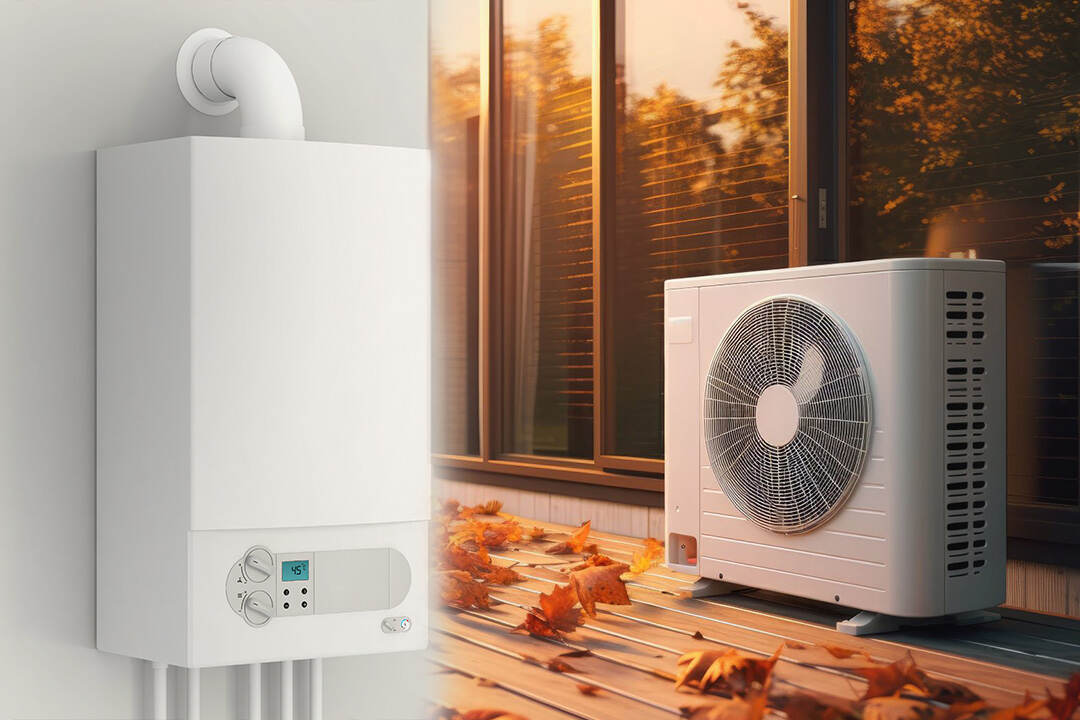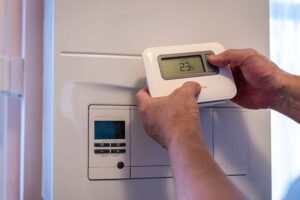The government has released data showing that heat pump applications are up by almost 50 per cent, while national press reports state that Rishi Sunak is going to scrap plans to fuel their use.
Applications to the Boiler Upgrade Scheme, open to both domestic households and landlords, were up 49 per cent in December 2023 from last year’s figure. The government cites the scheme as ‘one of the most generous of its kind in Europe’, offering grants of £7500 towards the cost of a heat pump.
Concurrently, the promotion of heat pumps as an eco-friendly alternative has encountered its own set of challenges. Despite their potential to significantly reduce carbon emissions and lower energy bills in the long run, the upfront costs associated with installing heat pump systems have deterred many homeowners from making the transition. This has prompted questions about the adequacy of government subsidies and support mechanisms to facilitate widespread adoption.
Energy Security Secretary, Claire Coutinho, commented on the figures:
| “We recently made our Boiler Upgrade Scheme one of the most generous schemes in Europe. Applications are now up by nearly 50% compared to last year.
Helping people, rather than forcing them, to make the right choices for their homes will always be my priority.” |
Minister for Energy Efficiency and Green Finance, Lord Callanan, spoke of targets to reach net zero:
| “These figures show more people want the cleaner heating and more stable bills you get with a heat pump.
Our approach to reaching net zero works, and because of increased heat pump grants, there’s never been a better time to make the switch.” |
Some people who don’t like the way the government is doing things now say that the focus on boiler grants keeps people using fossil fuels, which hurts attempts to reach net-zero carbon emissions. They say that if we want to make real progress towards our climate goals, we need to shift our resources to pushing heat pumps and other renewable energy technologies.
In reaction, supporters of boiler grants say that they are still an important way for families to get by financially when they are having a hard time, especially now that the COVID-19 pandemic has made the economy even less stable. They stress the importance of finding a balance between short-term relief needs and long-term goals for sustainability. They support a comprehensive plan that addresses both current needs and environmental concerns.
Most people think that we need a bigger plan to make the switch to heating systems that are better for the environment and work well. This is because the government is trying to meet all of these different needs. This means making sure that vulnerable households continue to get help through targeted boiler grants and giving more people the chance to get help with installing heat pumps through better subsidies and financing options.
Another important thing that people need to do is learn more about heat pump technology so that they don’t have false ideas about how much it costs and how it works. It would be better for people to buy and sell heat pumps if the government gave people information and told them how to make choices. This would clear up any questions about their reach.
Regulating boilers includes distributing boilers and radiators. This is done by lawmakers making choices based on facts so that everyone with a stake in the matter can help come up with ways to move forward, such as using boilers and heat pumps in homes to meet environmental or social needs. All energy problems must be handled through innovation, which means that groups must work together to find solutions so that our future healing events can happen.







